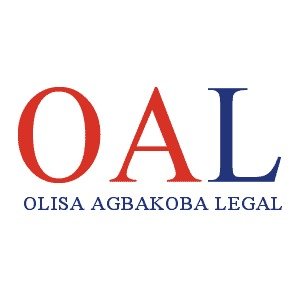Best Elder Law Lawyers in Apapa
Share your needs with us, get contacted by law firms.
Free. Takes 2 min.
List of the best lawyers in Apapa, Nigeria
Nigeria Elder Law Legal Questions answered by Lawyers
Browse our 2 legal questions about Elder Law in Nigeria and read the lawyer answers, or ask your own questions for free.
- Inherited land
- My elder brother sold our late father's land without telling me. We are the only two surviving sons.We live in our father's compound. He is married with two kids. I'm not married. Should I arrest him or the buyer? how do I get justice
-
Lawyer answer by Recososa Law Firm
Hello: In a situation like yours, under Philippine law, the land left behind by your father forms part of his estate. As heirs, you and your brother have what we call co-ownership under the Civil Code of the Philippines. This...
Read full answer - Family law - Inheritance
- What is the situation in Nigeria when a brother refuses to share their father's property with a sister just because she is s woman? They are from Imo state
-
Lawyer answer by NARAG LAW OFFICE
For all your legal needs, you can rely on us as your comprehensive legal partner. We specialize in corporate law, offering services such as contract drafting, business formation, and legal counsel for corporate transactions. In the realm of criminal law,...
Read full answer
About Elder Law in Apapa, Nigeria
Elder Law in Apapa, Nigeria, is an area of legal practice that emphasizes issues affecting the aging population. This field often deals with matters like estate planning, powers of attorney, guardianship, elder abuse, veteran's benefits, Medicare/Medicaid, and other social programs. Legal professionals in this field are equipped with a broad understanding of elder needs and work mentorship to ensure the rights and interests of elderly individuals are protected.
Why You May Need a Lawyer
You may need an elder law attorney in situations where you need help in making long-term care decisions, such as nursing home or assisted living arrangements, setting up a will, handling social benefits, or if you suspect abuse of an elderly individual. Lawyers can assist not only in navigating the legal system but also in connecting you with community resources, understanding difficult medical jargon, or creating a comprehensive estate plan. They are also instrumental in safeguarding the rights of older adults facing exploitation or abusing situations.
Local Laws Overview
The local laws in Apapa, Nigeria, aim to protect the welfare and rights of the elderly. For instance, The Constitution of the Federal Republic of Nigeria makes provision for the right to freedom from discrimination, right to dignity of the human person, right to life, and right to personal liberty - all of which apply to older persons. There's also the Older Persons (Rights and Privileges) Bill 2020, which provides protection, well-being, and safety of older persons in Nigeria.
Frequently Asked Questions
1. Can an elder law attorney help with nursing home issues?
Yes, elder law attorneys are instrumental in helping deal with nursing home and assisted living issues. They can assist in understanding contracts, negotiating care and deal with any abusive situations.
2. When should I start planning for long-term care?
The earlier, the better. It's generally recommended that individuals start considering long-term care options and related legal facets in their 50s or 60s.
3. Can elder law attorneys help with estate planning?
Yes, part of the elder law practice often involves helping clients plan their estates, draft wills, or set up trusts.
4. What is the process of appointing a legal guardian?
The process can vary, but generally it involves filing a petition with a court and demonstrating the elder individual cannot manage their own affairs.
5. What rights do the elderly have in Nigeria?
Elderly individuals in Nigeria have rights protected by the constitution, including but not limited to non-discrimination, personal liberty, dignity, and access to medical care. Additionally, the Older Persons (Rights and Privileges) Bill provides for even more protections.
Additional Resources
For additional information, the Nigerian Bar Association provides resources and can offer referrals to elder law practitioners. Local NGOs, such as the Coalition of Societies for the Rights of Older People in Nigeria (COSROPIN), can also provide helpful resources.
Next Steps
If you require legal assistance in elder law, the first step is to contact an elder law attorney. Make a list of your concerns and any relevant documentation to discuss during your initial consultation. It's essential to ensure that the attorney you choose has a strong background in elder law and is familiar with local laws and resources.
Lawzana helps you find the best lawyers and law firms in Apapa through a curated and pre-screened list of qualified legal professionals. Our platform offers rankings and detailed profiles of attorneys and law firms, allowing you to compare based on practice areas, including Elder Law, experience, and client feedback.
Each profile includes a description of the firm's areas of practice, client reviews, team members and partners, year of establishment, spoken languages, office locations, contact information, social media presence, and any published articles or resources. Most firms on our platform speak English and are experienced in both local and international legal matters.
Get a quote from top-rated law firms in Apapa, Nigeria — quickly, securely, and without unnecessary hassle.
Disclaimer:
The information provided on this page is for general informational purposes only and does not constitute legal advice. While we strive to ensure the accuracy and relevance of the content, legal information may change over time, and interpretations of the law can vary. You should always consult with a qualified legal professional for advice specific to your situation.
We disclaim all liability for actions taken or not taken based on the content of this page. If you believe any information is incorrect or outdated, please contact us, and we will review and update it where appropriate.








